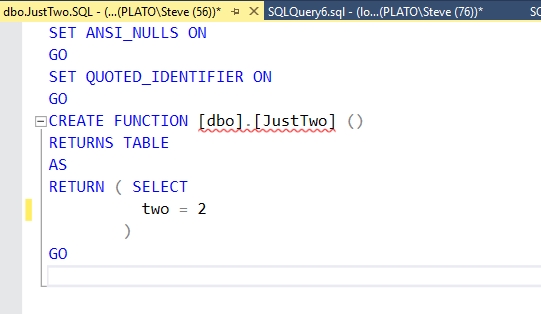

You can have lowercase search and it will display all the rows matching–lower case, upper case and capitalized. ILIKE is noting but LIKE with case-insensitive. That's why the alternative result set has that product. NOT LIKE with _ (underscore) QueryĪs we can see there is a product name with 'Cha' but it has more than 3 letters in it. There are products with the name 'Cha' in the database table but it will only display Chai because of the condition.Īlso, we can just add NOT in the query above and it will give all the alternative results. So, 'Ma%' means any name that starts with 'Ma' - no matter how long the name will be.īut 'Ma_' means only look for 3 letters in the name that starts with 'Ma'. The LIKE command is used in a WHERE clause to search for a specified pattern in a column. The _ (underscore) will only look for one character unlike %, which looks for unlimited letters after the specified word or letter. How does the underscore work in the query? It doesn't matter where, maybe in start, or end or in the middle. Then it's going to find out all the products which has 'Ma' (Capital M and small a) somewhere in their name. df1.filter ( ('Ria')).collect () RLIKE We. Returns a boolean Column based on a case insensitive match. _ – The underscore represents a single character What is we add % in the front and back of 'Ma' in above query? ILIKE (from 3.3.0) SQL ILIKE expression (case insensitive LIKE). % – The percent sign represents zero, one, or multiple characters There are two wild cards often used in conjunction with the LIKE operator: To begin with, we will create a tiny table with few random string values.It turns out that LOWER LIKE is still about 17 faster than iLIKE (a drop from 25 ). We used '%' to search for a specified pattern in a column. LIKE is the SQL standard while ILIKE is a useful extension made by PostgreSQL. How did the Postgres find out that we wanted name that starts from 'Ma'? The query will list all the products with name starting with 'Ma'. I am using the database for all examples. Hibernate's Criteria API has Restrictions.ilike function which has the following contract: A case-insensitive 'like', similar to Postgres ilike operator That's cool. We have seen LIKE examples in my previous blog posts. Postgres LIKE and ILIKE operators are used in pattern matching.


 0 kommentar(er)
0 kommentar(er)
